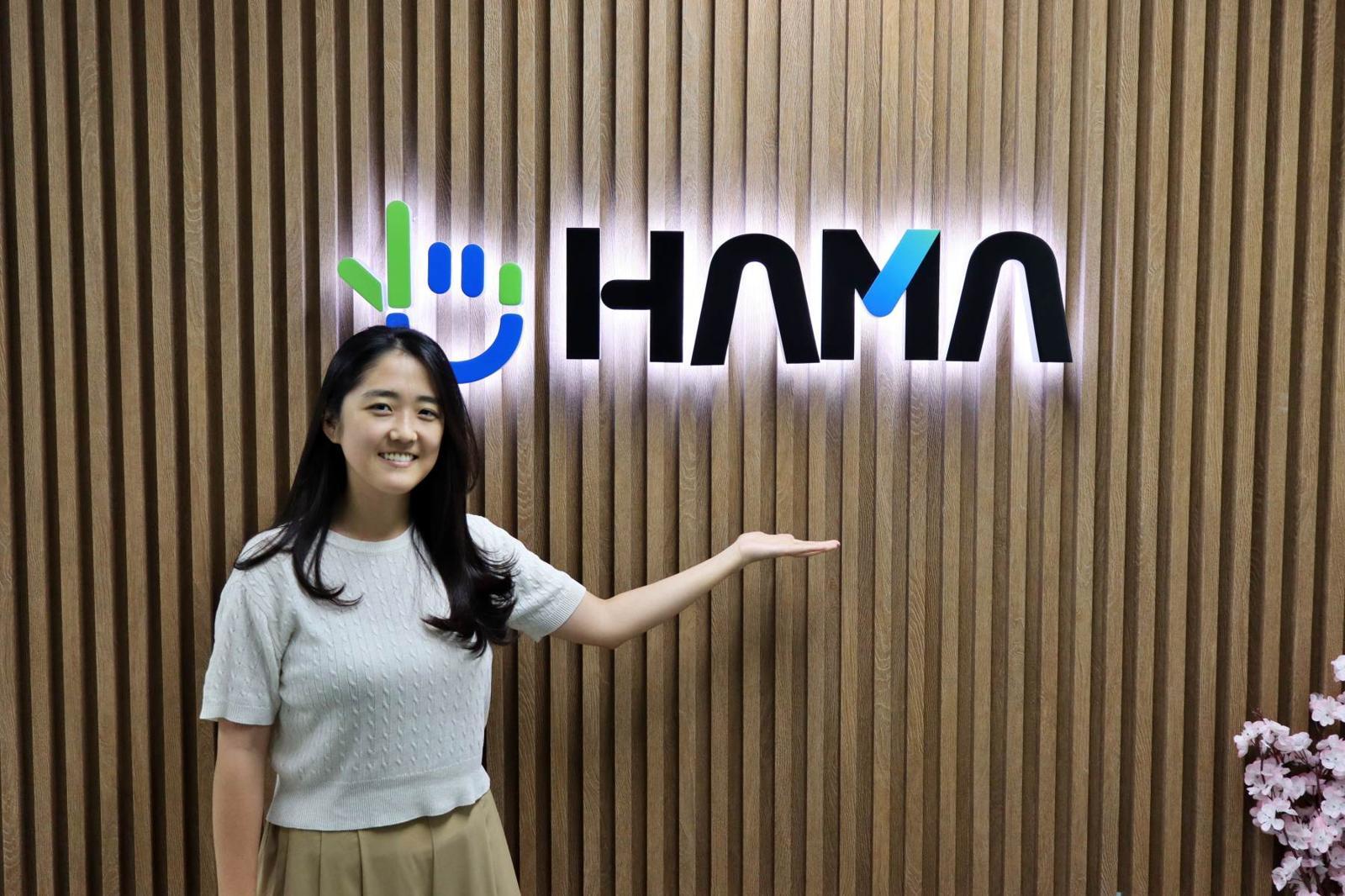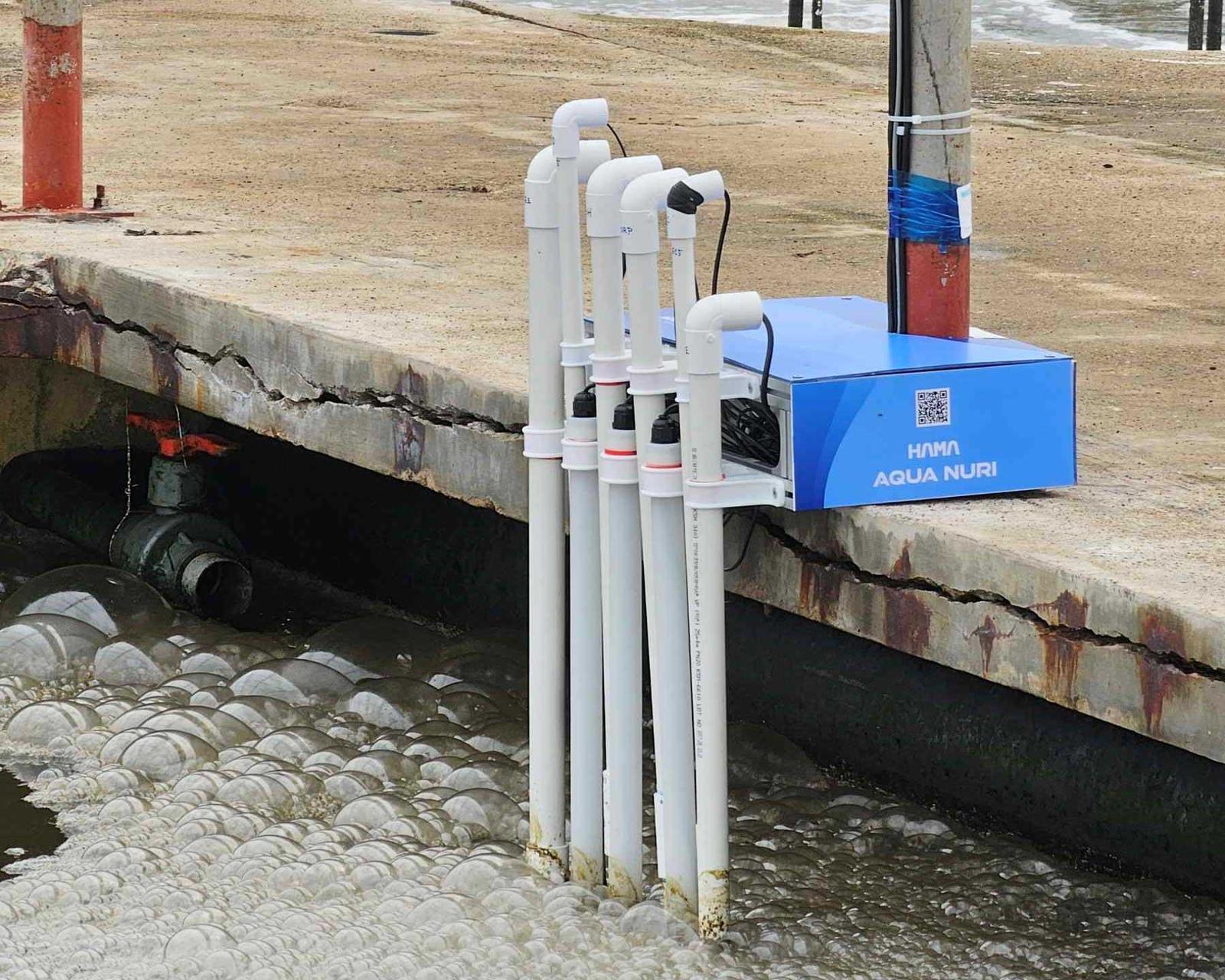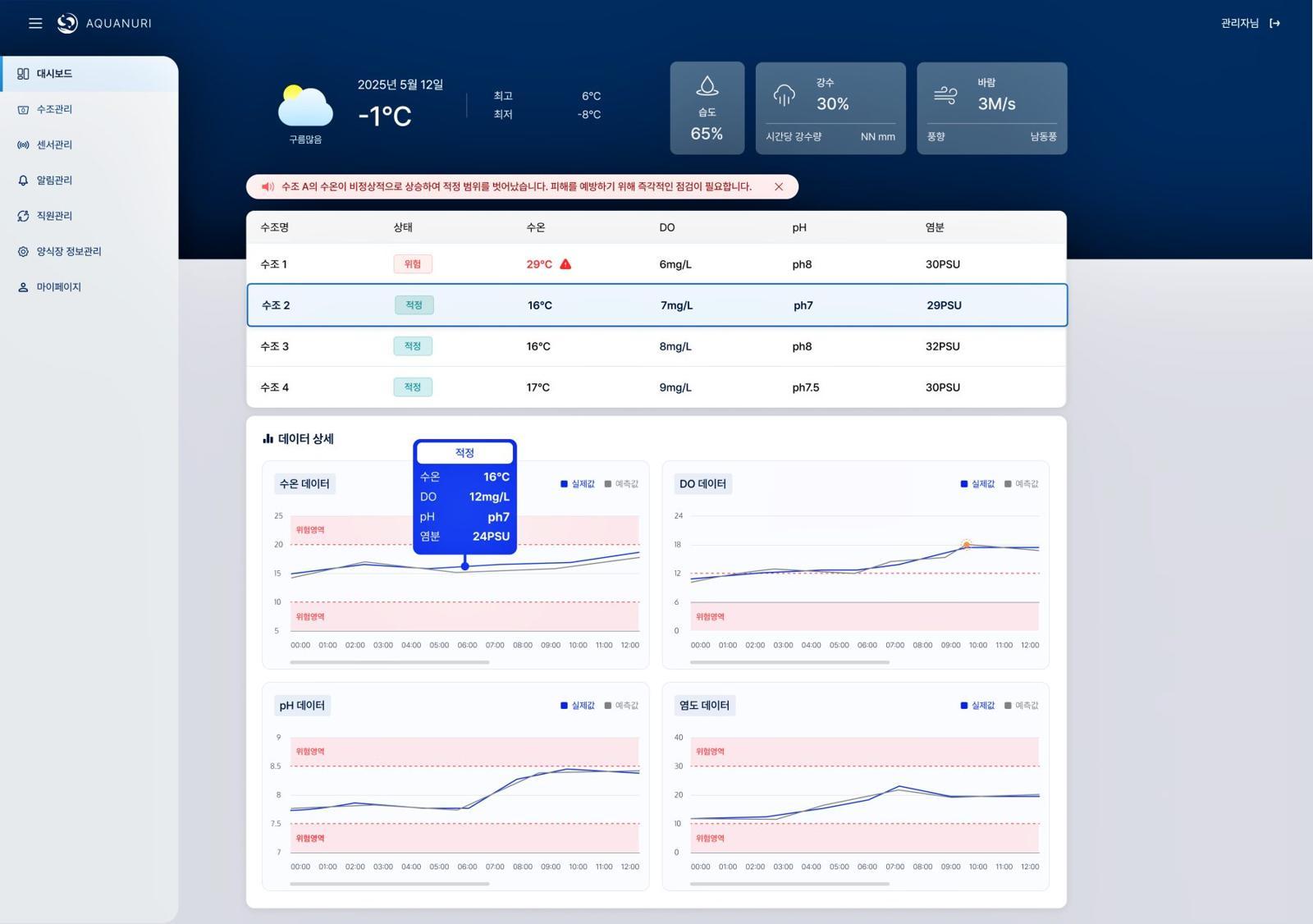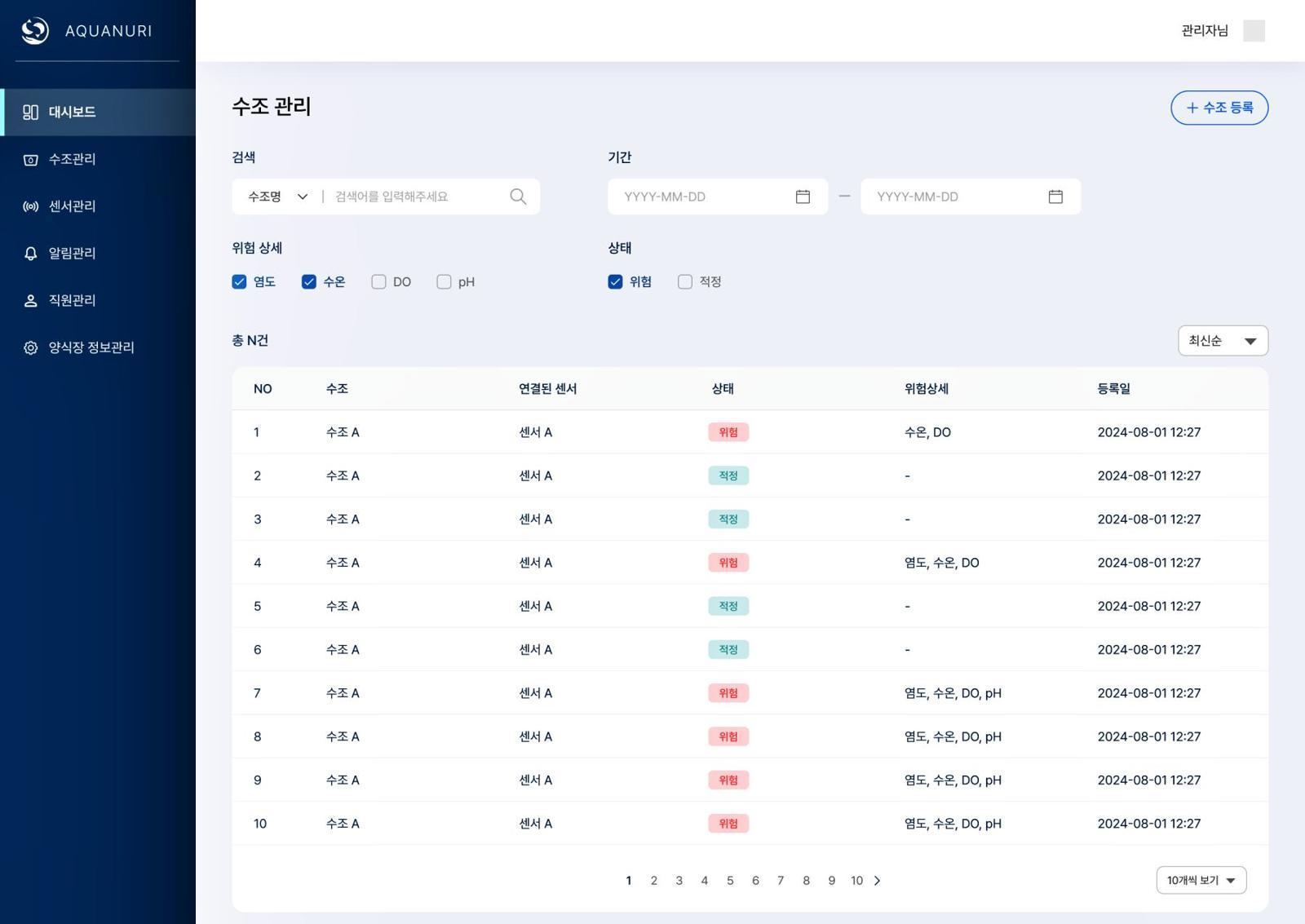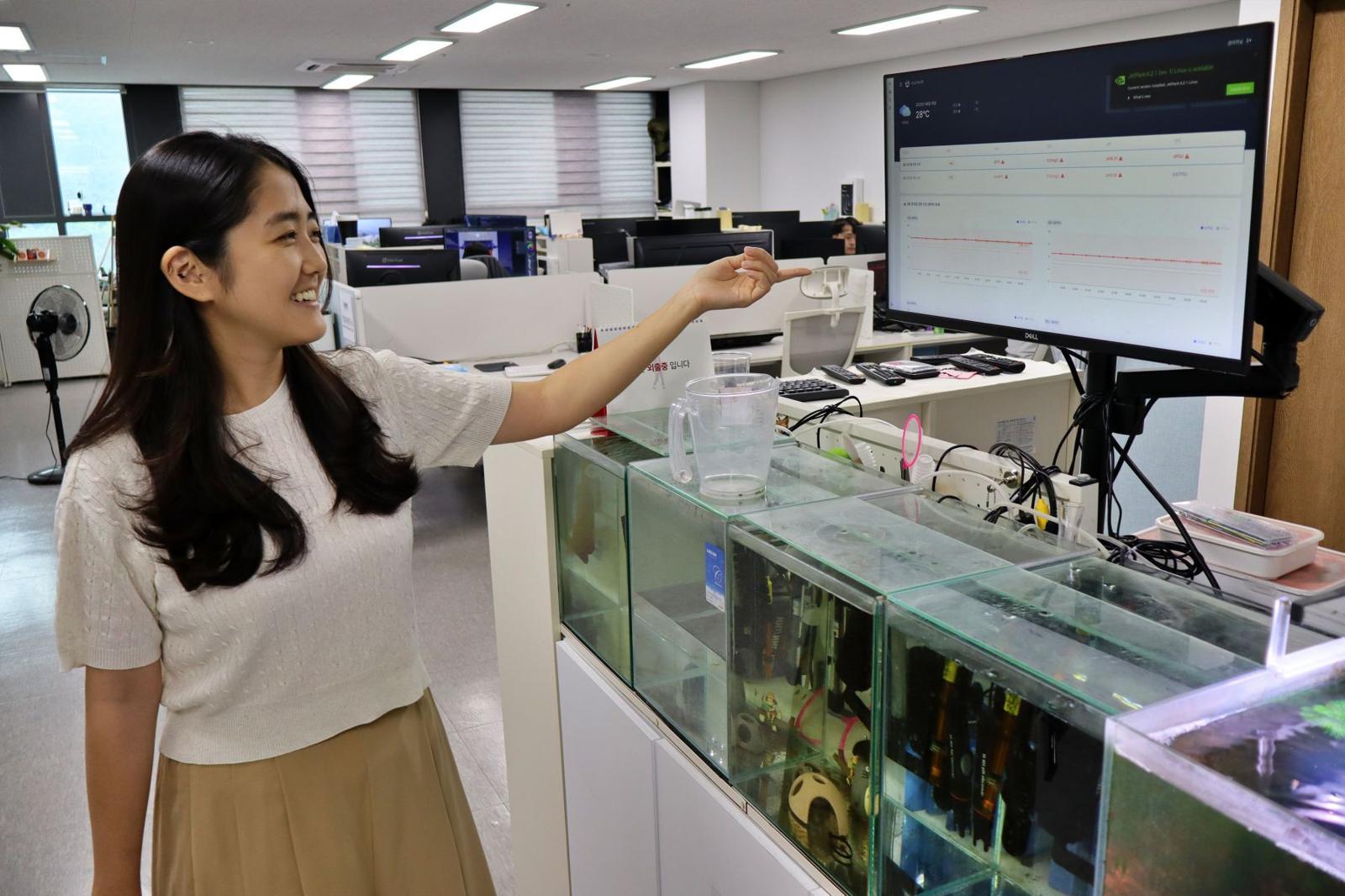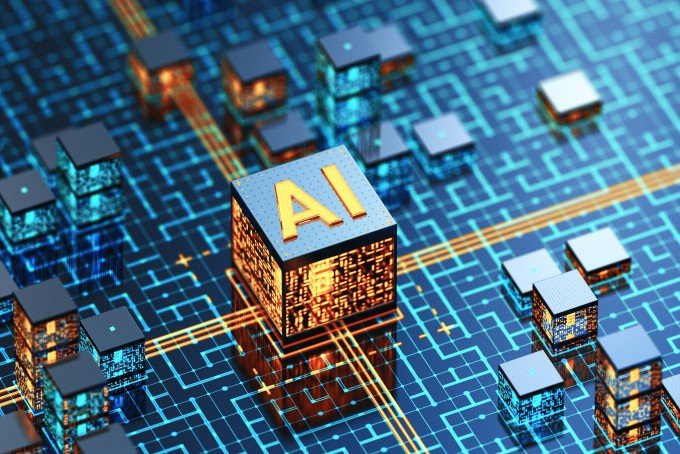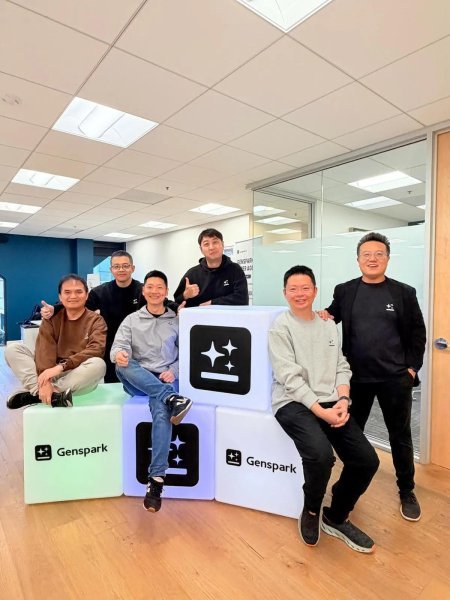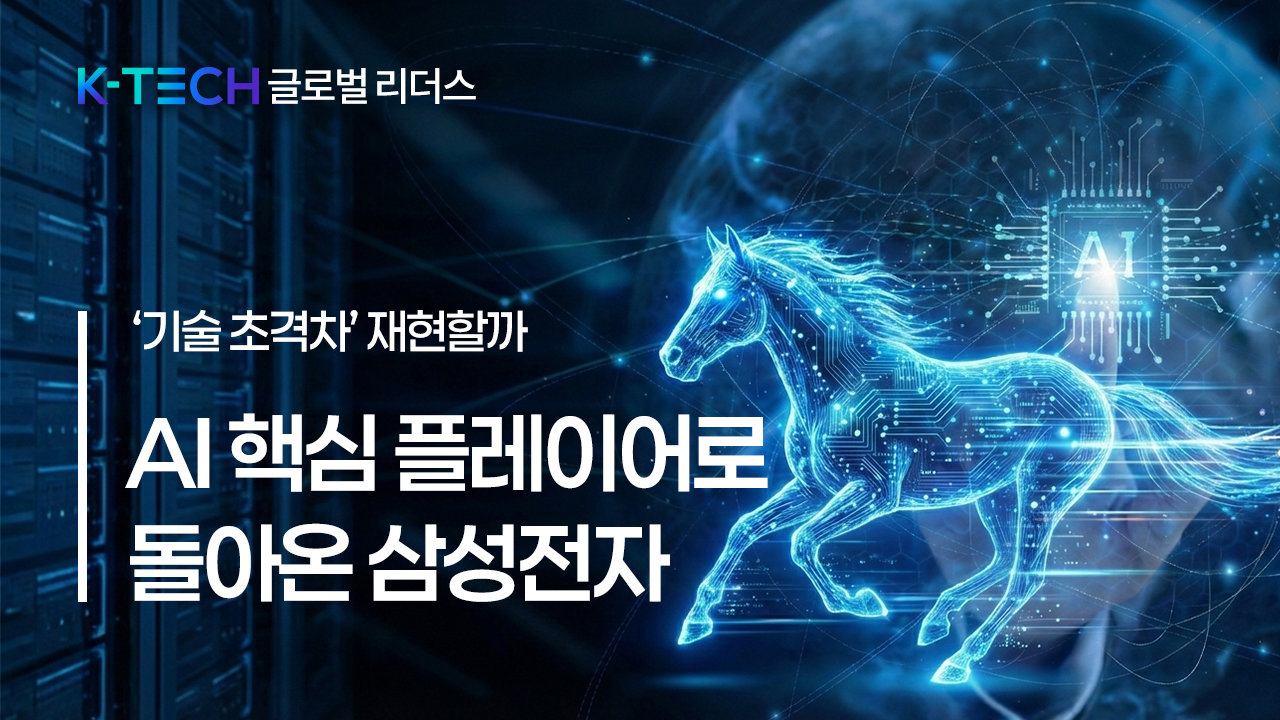
Startup
'Hama Lab' Aids Heat Response with Smart Fishery Solution
Dong-A Ilbo |
Updated 2025.09.25
[SeoulTech x Donga.com Joint Project] Seoul National University of Science and Technology (hereafter SeoulTech) operates various support programs to aid the growth of startups, including pre-startup and early-stage startup packages, maker spaces, and global collaborations. Furthermore, in collaboration with Donga.com, it provides global news to assist startups in overseas promotion and expansion, introducing promising deep tech startups domestically and internationally.
Due to summer heatwaves, high sea temperatures exceeding 28 degrees occur annually, leading to mass deaths of farmed fish species. These mass deaths not only cause significant damage to fish farmers but also result in a sharp decline in fish supply, causing prices to skyrocket. Hamalab has developed a smart fish farm management solution, 'Aquanuri,' to respond to such abnormal high temperatures by detecting water quality changes in real-time. By combining real-time monitoring functions with AI data analysis, it warns of risks in advance to reduce mortality rates. It also helps reduce labor costs with automated feeding functions and a dedicated enterprise resource planning (ERP) function for seafood. Kim Min-sun, CEO of Hamalab, introduced the solution.
Annual mass deaths of farmed fish species due to abnormal high temperatures... Responding with smart fish farm management solutions
Kim Min-sun, CEO of Hamalab, stated, "To prevent the increasingly worsening mass deaths of farmed fish species due to abnormal high temperatures, advanced technology-based management and predictive capabilities are necessary," adding, "It is time for digital transformation in fish farms, which is why we developed the smart fish farm management solution 'Aquanuri.'"
Last year, the high sea temperature warning, issued when sea temperatures exceed 28 degrees, lasted a record 71 days (from July 24 to October 2). This was fatal for species like flounder, which thrive between 18 and 24 degrees. According to the Ministry of the Interior and Safety's daily national safety management report, approximately 46.88 million farmed fish died from June 11 to September 20 last year. This damage continues this year as well. In the southern coast, where fish farms are concentrated, a high sea temperature warning was issued for 69 days from July 9 to September 16, along with red tide phenomena. As a result, over 500,000 farmed fish died in just one week from August 26 to September 1.
Kim Min-sun explained, "Aquanuri operates by having IoT sensors placed in fish farm tanks detect water quality data in real-time, which AI then analyzes. When the water temperature changes beyond the standard, it alerts abnormal signs, allowing immediate response and detecting rapid environmental changes that cause diseases in fish," adding, "Additionally, it helps reduce labor costs with automated feeding functions and ERP functions that assist in production, sales, and accounting management. Existing manual input of breeding logs and sales management can now be managed with a seafood-specific database."
He continued, "Thanks to the various functions of Aquanuri, it is possible to prevent productivity decline caused by the aging and lack of expertise in the fish farming labor force. All technologies that make up Aquanuri are based on proprietary sensing technology and AI-based predictive modeling technology, allowing users to subscribe to only the desired functions for lightweight service use," adding, "In addition to smart fish farm management solutions, Hamalab provides end-to-end services from platform planning to construction and operation based on AI technology. It offers solutions to various industries, including natural language search-based news clipping automation services and stable diffusion-based virtual fitting services."
Overcoming model performance limitations for fish disease selection in fish farms through collaboration with Oracle
Hamalab is accelerating the enhancement of services for the commercialization of the smart fish farm management solution, Aquanuri.
Kim Min-sun stated, "We are currently focused on necessary improvements for the commercialization of Aquanuri. For instance, there were limitations in the performance of our self-developed model for selecting fish diseases in fish farms. The introduction of the system was also on hold due to cost and customization issues with existing cloud services," adding, "At this time, we were selected for the global enterprise collaboration program operated by Seoul National University of Science and Technology, allowing us to collaborate with Oracle. By utilizing Oracle Cloud Infrastructure (OCI), we overcame performance limitations with OCI Vision and increased productivity with Oracle's HeatWave generative AI and OCI Data Science, bringing us one step closer to commercialization."
He continued, "For the expansion of the solution, smooth collaboration with traditional fish farmers who are conservative about technology adoption is also necessary. To investigate the demand of fish farmers interested in smart fish farm management solutions, I personally visited about 200 fish farms in Jeju Island, but only two led to actual collaboration. Currently, we are conducting technology tests on flounder and whiteleg shrimp at these fish farms," adding, "To apply the technology to more diverse species, various test beds and data are needed. It would be helpful if the government played a mediating role between fish farmers, research institutes, and technology companies."
Hamalab is also developing a direct trading service for fish farms to improve the supply-demand instability in seafood distribution.
Kim Min-sun stated, "We are also preparing a system to stably supply fresh seafood by adding a direct trading service for fish farms to Aquanuri," adding, "Previously, the instability in seafood supply exposed limitations such as order cancellations and delivery delays. This made managing species inventory and sales difficult and caused quality issues in the complex distribution process. Once the Aquanuri fish farm direct trading service is established, fresh seafood from each fish farm can be purchased online. Since transaction information is immediately reflected in the system, smooth inventory and sales management for fish farmers is also possible."
Finally, the future plans of Hamalab were discussed.
Kim Min-sun stated, "Hamalab has built a foundation for sustainable growth so far. The development of AI technology embodies the value of 'Harmonious Advancement for Mankind (HAMA),' which is also inscribed in our company name. We will further accelerate the development of people-centered AI to provide real value to society as a whole," adding, "We will refine our customized AI solutions and grow into a competitive technology company that can succeed in the global market. Additionally, we will continue to invest in recruiting and nurturing young talent, growing alongside the local community. Most of Hamalab's members are young people. We aim to establish ourselves as a company that realizes both technological innovation and social responsibility, creating a better tomorrow."
IT Donga Reporter Kim Dong-jin (kdj@itdonga.com)
Due to summer heatwaves, high sea temperatures exceeding 28 degrees occur annually, leading to mass deaths of farmed fish species. These mass deaths not only cause significant damage to fish farmers but also result in a sharp decline in fish supply, causing prices to skyrocket. Hamalab has developed a smart fish farm management solution, 'Aquanuri,' to respond to such abnormal high temperatures by detecting water quality changes in real-time. By combining real-time monitoring functions with AI data analysis, it warns of risks in advance to reduce mortality rates. It also helps reduce labor costs with automated feeding functions and a dedicated enterprise resource planning (ERP) function for seafood. Kim Min-sun, CEO of Hamalab, introduced the solution.
Kim Min-sun, CEO of Hamalab / Source=IT Donga
Annual mass deaths of farmed fish species due to abnormal high temperatures... Responding with smart fish farm management solutions
Kim Min-sun, CEO of Hamalab, stated, "To prevent the increasingly worsening mass deaths of farmed fish species due to abnormal high temperatures, advanced technology-based management and predictive capabilities are necessary," adding, "It is time for digital transformation in fish farms, which is why we developed the smart fish farm management solution 'Aquanuri.'"
Last year, the high sea temperature warning, issued when sea temperatures exceed 28 degrees, lasted a record 71 days (from July 24 to October 2). This was fatal for species like flounder, which thrive between 18 and 24 degrees. According to the Ministry of the Interior and Safety's daily national safety management report, approximately 46.88 million farmed fish died from June 11 to September 20 last year. This damage continues this year as well. In the southern coast, where fish farms are concentrated, a high sea temperature warning was issued for 69 days from July 9 to September 16, along with red tide phenomena. As a result, over 500,000 farmed fish died in just one week from August 26 to September 1.
Kim Min-sun explained, "Aquanuri operates by having IoT sensors placed in fish farm tanks detect water quality data in real-time, which AI then analyzes. When the water temperature changes beyond the standard, it alerts abnormal signs, allowing immediate response and detecting rapid environmental changes that cause diseases in fish," adding, "Additionally, it helps reduce labor costs with automated feeding functions and ERP functions that assist in production, sales, and accounting management. Existing manual input of breeding logs and sales management can now be managed with a seafood-specific database."
Hamalab IoT sensors measuring water quality in real-time / Source=Hamalab
AI analyzing data to warn of abnormal water temperatures / Source=Hamalab
Aquanuri admin page showing the status and risk information of each sensor installed in fish farm tanks / Source=Hamalab
He continued, "Thanks to the various functions of Aquanuri, it is possible to prevent productivity decline caused by the aging and lack of expertise in the fish farming labor force. All technologies that make up Aquanuri are based on proprietary sensing technology and AI-based predictive modeling technology, allowing users to subscribe to only the desired functions for lightweight service use," adding, "In addition to smart fish farm management solutions, Hamalab provides end-to-end services from platform planning to construction and operation based on AI technology. It offers solutions to various industries, including natural language search-based news clipping automation services and stable diffusion-based virtual fitting services."
Kim Min-sun, CEO of Hamalab, introducing the solution / Source=IT Donga
Overcoming model performance limitations for fish disease selection in fish farms through collaboration with Oracle
Hamalab is accelerating the enhancement of services for the commercialization of the smart fish farm management solution, Aquanuri.
Kim Min-sun stated, "We are currently focused on necessary improvements for the commercialization of Aquanuri. For instance, there were limitations in the performance of our self-developed model for selecting fish diseases in fish farms. The introduction of the system was also on hold due to cost and customization issues with existing cloud services," adding, "At this time, we were selected for the global enterprise collaboration program operated by Seoul National University of Science and Technology, allowing us to collaborate with Oracle. By utilizing Oracle Cloud Infrastructure (OCI), we overcame performance limitations with OCI Vision and increased productivity with Oracle's HeatWave generative AI and OCI Data Science, bringing us one step closer to commercialization."
He continued, "For the expansion of the solution, smooth collaboration with traditional fish farmers who are conservative about technology adoption is also necessary. To investigate the demand of fish farmers interested in smart fish farm management solutions, I personally visited about 200 fish farms in Jeju Island, but only two led to actual collaboration. Currently, we are conducting technology tests on flounder and whiteleg shrimp at these fish farms," adding, "To apply the technology to more diverse species, various test beds and data are needed. It would be helpful if the government played a mediating role between fish farmers, research institutes, and technology companies."
Hamalab is also developing a direct trading service for fish farms to improve the supply-demand instability in seafood distribution.
Kim Min-sun stated, "We are also preparing a system to stably supply fresh seafood by adding a direct trading service for fish farms to Aquanuri," adding, "Previously, the instability in seafood supply exposed limitations such as order cancellations and delivery delays. This made managing species inventory and sales difficult and caused quality issues in the complex distribution process. Once the Aquanuri fish farm direct trading service is established, fresh seafood from each fish farm can be purchased online. Since transaction information is immediately reflected in the system, smooth inventory and sales management for fish farmers is also possible."
Finally, the future plans of Hamalab were discussed.
Kim Min-sun stated, "Hamalab has built a foundation for sustainable growth so far. The development of AI technology embodies the value of 'Harmonious Advancement for Mankind (HAMA),' which is also inscribed in our company name. We will further accelerate the development of people-centered AI to provide real value to society as a whole," adding, "We will refine our customized AI solutions and grow into a competitive technology company that can succeed in the global market. Additionally, we will continue to invest in recruiting and nurturing young talent, growing alongside the local community. Most of Hamalab's members are young people. We aim to establish ourselves as a company that realizes both technological innovation and social responsibility, creating a better tomorrow."
IT Donga Reporter Kim Dong-jin (kdj@itdonga.com)
AI-translated with ChatGPT. Provided as is; original Korean text prevails.
ⓒ dongA.com. All rights reserved. Reproduction, redistribution, or use for AI training prohibited.
Popular News







